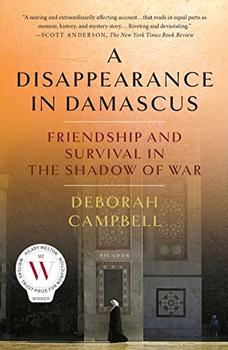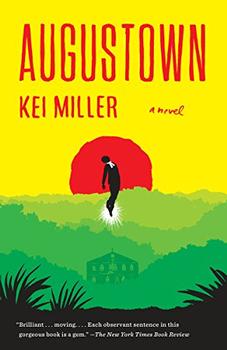Summary | Excerpt | Reviews | Beyond the book | Read-Alikes | Genres & Themes | Author Bio

A magnum opus that brings to life an intricate portrait of catastrophic events that led up to the war on terror and the America we are today.
Renowned through four award-winning books for his gritty and revelatory visions of the Caribbean, Bob Shacochis returns to occupied Haiti in The Woman Who Lost Her Soul before sweeping across time and continents to unravel tangled knots of romance, espionage, and vengeance. In riveting prose, Shacochis builds a complex and disturbing story about the coming of age of America in a pre-9/11 world.
When humanitarian lawyer Tom Harrington travels to Haiti to investigate the murder of a beautiful and seductive photojournalist, he is confronted with a dangerous landscape riddled with poverty, corruption, and voodoo. It's the late 1990s, a time of brutal guerrilla warfare and civilian kidnappings, and everyone has secrets. The journalist, whom he knew years before as Jackie Scott, had a bigger investment in Haiti than it seemed, and to make sense of her death, Tom must plunge back into a thorny past and his complicated ties to both Jackie and Eville Burnette, a member of Special Forces who has been assigned to protect her.
From the violent, bandit-dominated terrain of World War II Dubrovnik to the exquisitely rendered Istanbul in the 1980s, Shacochis brandishes Jackie's shadowy family history with daring agility. Caught between her first love and the unsavory attentions of her father, an elite spy and quintessential Cold War warrior pressuring his daughter to follow in his footsteps, seventeen-year-old Jackie hatches a desperate escape plan that puts her on course to becoming the soulless woman Tom equally feared and desired.
Set over fifty years and in four countries backdropped by different wars, The Woman Who Lost Her Soul is a magnum opus that brings to life, through the mystique and allure of history, an intricate portrait of catastrophic events that led up to the war on terror and the America we are today.
This is not an easy book to read - for one thing it is over 700 pages long. For another, the attentions that Steve Chambers bestows on his daughter are enough to creep you out. Equally, this is a difficult book to digest. The scope of American intervention and the incredible machinery set in place to keep the giant appeased are depressing to say the least. Yet it is hard to look away. Like the country for which she is supposed to be a metaphor, The Woman Who Lost Her Soul might be deeply flawed, sometimes crass and vulgar, but she is also vulnerable and vividly unforgettable...continued
Full Review
 (753 words)
(753 words)
(Reviewed by Poornima Apte).
In The Woman Who Lost Her Soul, you can see the United States' complex diplomatic and espionage mechanisms at work. As the cliché goes, freedom is expensive. The vastness of this network is complemented by a parallel one, the U.S. Military-Industrial Complex, a term coined by President Eisenhower to cover the many industries, lobbyists and other interests who benefit from the spending might of the American military.
During World War II, industries working toward providing goods for the war in the United States flourished. It is no secret why the economy was vibrant - a lot of goods were necessary to keep the war effort fueled. But once the war was over, the armaments industry and its associated offshoots weren't dialed down much. ...

If you liked The Woman Who Lost Her Soul, try these:

by Deborah Campbell
Published 2018
In the midst of an unfolding international crisis, renowned journalist Deborah Campbell finds herself swept up in the mysterious disappearance of Ahlam, her guide and friend. Campbell's frank, personal account of a journey through fear and the triumph of friendship and courage is as riveting as it is illuminating.
Winner of the Hilary Weston ...

by Kei Miller
Published 2018
In the wake of Marlon James's Man Booker Prize–winning A Brief History of Seven Killings, Augustown - set in the backlands of Jamaica - is a magical and haunting novel of one woman's struggle to rise above the brutal vicissitudes of history, race, class, collective memory, violence, and myth.